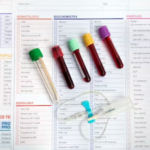“The Next Lucy Liu” Discusses Difficult Shoot, Challenging Role in Controversial New FilmBy LYNDA LIN, Pacific Citizen Assistant Editor
“I’m really [a] prude,” said Lee. “The first time I drank was right before we shot the film just to feel what it was like to be buzzed.” In the name of research for “Close Call,” a film written, directed and co-produced by her father Jimmy Lee, the actress does more than taste alcohol, she creates a rebellious colorful-haired character not afraid to suck the marrow out of life and spit it in your face. Lee plays Jenny Kim, the product of a broken marriage who drifts from the arms of one stranger to another. Without any role models, she becomes every parent’s worst nightmare by hanging out on the streets, going to raves and (gasp!) flunking out of school. “I was very angry and frustrated,” said Jimmy about filming his daughter in many compromising situations including a rape scene. “I didn’t want to have my daughter doing those things. I just tried to be professional. In the end, the experience made us closer.” In fact, Jimmy rejected the idea of casting his daughter until the production date drew dangerously near and he still had not found the perfect actress. He made Annie audition and realized that “she could act.” The new rebellious face of Asian American youth is revealed, and it’s pretty easy on the eyes. Ever since Justin Lin’s “Better Luck Tomorrow” shattered the model minority stereotype, Asian American film is continuing to push the envelope. The striking actress billed as the “next Lucy Liu” is a UCLA graduate and a former model. This is her big screen debut opposite her sister, Angie Lee, making “Close Call” not only the first Korean American film to be released in Los Angeles in commercial theaters, but also an all-hands family venture.
Pacific Citizen: Do you have anything in common with your character? Annie Lee: No. It was just kind of difficult for me because I am completely opposite of the character. I don’t drink or smoke. I’ve never tried marijuana. Everyone has at least tried that, but I’m just really anti-drugs. PC: So you weren’t doing lines of coke with your friends or having casual sex? AL: No! (laughs) I was a prude in high school. My friends would do all that stuff, but I was the one who always said no to everything. PC: During filming, did you ever stop and think, `My dad is watching me simulate sex and do a line of coke. This is kind of weird’?
AL: Everything was going by so fast. We did only one or two takes and that was it. When it was happening, especially the bathroom stall scene — it was really quick, but that was (laughs) really weird. We would have to position ourselves in a certain way. I just tried to pretend that he’s not my dad. I just wouldn’t look at him. PC: What was the most challenging about working with your dad? AL: Just everything. It was nice because we could be honest with each other. Because all three of us have such different thoughts … trying to decide on something took a long time. Collaborating with three people was hard. PC: What is the best and worst quality that you inherited from your dad? AL: The best is probably that I’m kind of a perfectionist. I’m very passionate. The worst is … he’s a worry wart. He worries about everything and I worry about everything too. PC: Did you do all your own stunts? AL: Yeah. I got so many bruises. Even like the rape scene, we really wanted to get into it, so I told [the actor] that he could really slap me, so he was really slapping me and stuff (laughs).
PC: Let’s talk about the fight scene with Christina Ma. AL: There was a stunt man there. It was my favorite. It was so fun. PC: Fun? AL: Because we were rolling down a couple of stairs at a time, so we were just tumbling, but Christina hated it. PC: In this movie, Jenny only goes out with non Asians and her mom divorces her Korean husband to be with a white man. Does it concern you that you may be reinforcing a stereotype? AL: I don’t think so. I don’t know if it’s really a stereotype. We’re in a melting pot and you can’t ignore that and there are people who are mixed couples and I don’t think there’s anything wrong with that. We were not trying to create stereotypes, we were just telling a story. PC: Why doesn’t Jenny go out with any Asian guys? AL: Basically, she’s not surrounded by Asian guys. She basically wasn’t surrounded by any Asians. Her mom was the one she’s living with — she’s very Americanized, so she just was kind of lost. She lost her culture. That’s why her father comes back and tries to immerse her in her culture, but I don’t think it mattered what the guys were. PC: Does Jenny hate her culture?
AL: No. I think some people might think she hates her culture, but it’s totally not that. At the same time, she’s very influenced by Caucasians, so maybe she thinks that Asians are the stereotypical way white people see them — nerdy or something like that. Which is why I think it’s good, because at the end, she doesn’t feel that way. PC: How do your views of Asian Americans relate to Jenny’s? AL: There is this sort of prejudice that already exists in Asian Americans too. Even when I was younger, I was like, `Some Asians are FOBS.’ Well, I was Asian and I liked Asian guys and whatever, but when I was younger, I thought some were nerdy. She has a view that a lot of Americans do — even Asian Americans.
Other Readings of Interest
|
|||
|

 Onscreen, Annie Lee crawls over bodies writhing in ecstasy and purrs, “Let’s rape these boys.” In person, she lowers her voice when she mentions the word “sex” for the first time.
Onscreen, Annie Lee crawls over bodies writhing in ecstasy and purrs, “Let’s rape these boys.” In person, she lowers her voice when she mentions the word “sex” for the first time.









